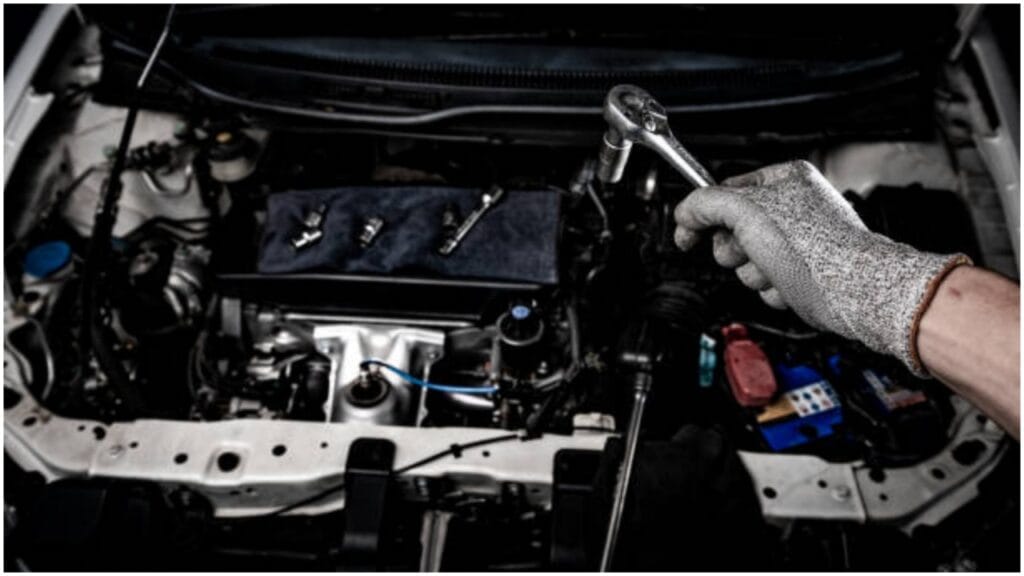Hey there, let’s talk about that knocking noise coming from your engine. Don’t stress—we’ve been there, and we know how to handle it. Trust me, you’re in good hands. We’ll break everything down so it’s super easy to understand and fix.
So, what’s causing that knock? It’s called rod knock, and it happens when parts inside your engine aren’t getting enough oil. Without proper lubrication, the connecting rods hit the crankshaft, making that awful noise. Fixing it means replacing the worn parts or rebuilding the engine. It’s not something you want to ignore because it can cause bigger problems fast.
Stick with us, and we’ll cover what causes this issue, the best ways to fix it, and how to prevent it in the future. Let’s get started!
03 vrod engine engine knocking
An ’03 V-Rod engine knocking signals serious trouble. Immediate attention is crucial. Common causes include worn rod bearings, piston slap, or valve train issues. Low oil levels exacerbate these problems.
Listen closely to pinpoint the knock’s location. A deep, rhythmic knock often indicates rod bearing failure. Piston slap is a lighter, metallic sound, especially when cold. Valve train noise is a higher-pitched ticking or clatter. Do not ignore these sounds.
Continued operation risks catastrophic engine damage. Check oil level first. Then, consult a qualified mechanic. They can diagnose the issue and recommend repairs. Early intervention saves money and prevents engine failure.
Start with Engine Oil
Check the oil first. Low oil levels can cause rod knock. Add more oil if it’s low. Use the type of oil recommended for your car.
Old oil that’s lost its thickness can also cause knocking. Change it with fresh oil and a new filter. This is the most straightforward fix and works in many cases.
Try an Oil Additive
Oil alone isn’t enough. Special additives can help. These products improve lubrication and reduce friction. They can quiet the knock if the damage isn’t too severe. Pour the additive into the oil and let it circulate.
Drive Gently
Don’t push your car hard if you hear rod knocking. Aggressive driving worsens the problem. Drive slowly and avoid revving the engine.
Gentle driving reduces stress on the rods and bearings, helping to limit further damage while you figure out a fix.
Check the Bearings
Rod knocking often means the bearings are worn out. Bearings keep the rods moving smoothly. The rods hit the crankshaft when they wear down, causing the knock.
Replacing the bearings can fix the problem. This repair requires opening the engine, but it’s worth it if caught early.
Inspect the Rods
The rods can become bent or damaged due to high stress or a lack of oil. A damaged rod can’t be ignored. If the rod is the issue, a mechanic must replace it.
Tighten Loose Bolts
The knocking comes from loose connecting rod bolts. These bolts hold the rods in place. If they loosen, the rods will move too much. A mechanic can tighten or replace the bolts to fix this.
Consider the Crankshaft
The crankshaft might be part of the problem. Rod knocks often damage the crankshaft journals. These are the smooth surfaces where rods connect. If they’re worn out, they need to be polished or replaced.
Avoid Engine Overhaul, If Possible
An engine overhaul is the last resort. The engine may need a complete rebuild if the damage is too severe.
This is expensive and time-consuming, so catching rod knocks early is crucial. Minor fixes can prevent big repairs later.
Stop the Knock Early
The key to stopping rod knock is early action. Don’t ignore the noise. Start with simple fixes like oil changes and additives. If the noise persists, visit a mechanic.
Understanding Rod Knock

Rod knock is a clear signal your engine is struggling. The sound comes from the rods inside the engine.
They’re connected to the crankshaft and move as the engine runs. When something goes wrong, this harmony breaks, and you hear the knock.
What Causes the Noise
Loose connections cause rod knock. Worn bearings, low oil pressure, or high engine stress can create this problem. The sound is more noticeable when you accelerate or put the engine under load. It’s a sign of metal hitting metal.
The Danger of Ignoring It
Ignoring rod knock can lead to more significant issues. The engine’s internal parts are delicate. Continued knocking causes wear, cracks, and even complete failure. Acting quickly can save your car from a costly breakdown.
The Role of Oil Pressure
Low oil pressure plays a big part in rod knock. The engine depends on a steady oil flow to keep things moving smoothly. When the pressure drops, friction increases, and knocking often begins here.
Listening to Your Engine
Pay close attention to your car’s sounds. Rod knock is deep and rhythmic, like a hollow tapping. It’s not a random noise. Knowing this sound helps you act before it gets worse.
When to Seek Help
DIY fixes work sometimes, but not always. If the knock persists, it’s time to consult a professional. A mechanic can pinpoint the problem. They’ll also tell you if it’s safe to keep driving or if repairs are urgent.
Other Symptoms to Watch
Rod knock might not be the only sign. You could notice low oil levels, a drop in performance, or an engine warning light. These clues often show up alongside the noise.
A Long-Term View
Fixing rod knock doesn’t just solve the current problem. It protects your engine for the future. Even minor repairs today can prevent significant failures down the line. Regular maintenance also plays a huge role.
Conclusion
Rod knock is a serious warning sign you can’t ignore. It signals trouble inside your engine that, if left unchecked, can lead to significant damage or even engine failure.
Addressing the issue early can save your car and wallet, whether through an oil change, additives, or professional repairs. Listen to your engine, act quickly, and prioritize regular maintenance to prevent future problems.

